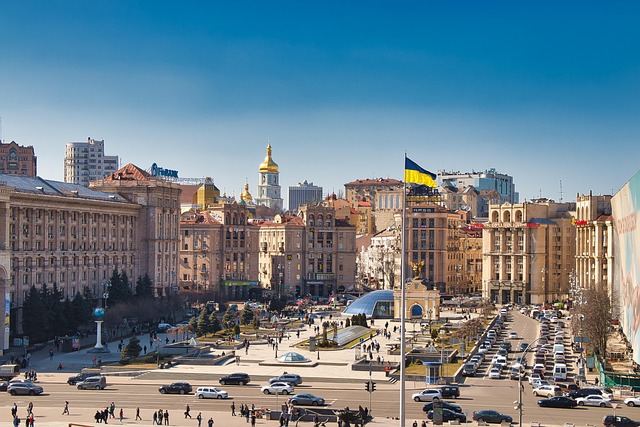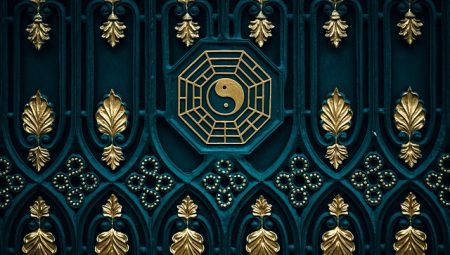However, not all societies cherish aging in the same light. In the fast-paced west, there’s often a push to stay young and vibrant, creating a culture that can sometimes sideline older individuals. You might find it striking that in some places, portraying immaturity as a virtue overshadows the importance of experience. It’s like a blockbuster movie where the young star steals the spotlight, while the seasoned actors get their roles diluted—unfair, right?
Then, there are societies where the mere concept of elder care baffles the mind. Picture a bustling metropolis where nursing homes are just another part of life, but in rural communities, families might see it as a given to care for aging parents at home. It’s a tug-of-war between convenience and tradition, much like deciding between takeout and a home-cooked meal.
In different corners of the world, aging might be met with dignity and respect, or it can be misunderstood and overlooked. Isn’t it fascinating how our perceptions shape our interactions with the elderly? As the world gets more interconnected, the dialogue around aging becomes even richer—and that’s a conversation we all need to join. Is there a better way to celebrate life’s journey than by embracing those who’ve traveled it longer than us?
Aging Across Cultures: A Comparative Look at How Societies Embrace the Elderly
But then, flip the coin, and we see a different picture in some Western societies, where youth often takes the spotlight. Here, aging can feel more like an afterthought, as the relentless chase for the fountain of youth overshadows the invaluable contributions of older generations. It’s interesting, isn’t it? In Japan, for instance, there’s a beautiful celebration known as “Seijin Shiki,” honoring those who turn 20—while in the U.S., we often celebrate milestone birthdays with a shrug, focusing more on the next big adventure than the richness of the journey that got us there.
Now, let’s not forget the fascinating ways some cultures intertwine aging with community roles. In Indigenous cultures, elders serve as key storytellers, passing down traditions that keep the community connected. They’re like living libraries, filled with a wealth of knowledge and experience that enriches everyone around them.
From Honor to Isolation: The Varied Approaches to Aging in Global Societies
Isn’t it interesting how different societies handle the passage of time? In places like Japan, aging is celebrated through traditional festivals where older generations are honored, showcasing deep familial bonds. Contrast that with the growing number of elderly living alone in the United States, where stereotypes about aging can overshadow the wisdom that comes with it. You might wonder: how do we bridge this divide?

Golden Years or Golden Challenges? Understanding Aging Through Cultural Lenses
Let’s break it down. In some cultures, aging is celebrated like a fine wine, growing richer and deeper with time. For instance, in many Asian communities, elders aren’t just respected; they are regarded as living treasures, holding the keys to wisdom and family history. They’re the go-to source for advice and moral grounding. It’s like having a walking library filled with life’s lessons!
But take a glance at the Western perspective, and you might find a stark contrast. Here, the narrative often leans towards youthfulness—think anti-aging creams and the obsession with staying fit. Aging can sometimes feel like a loss of relevance, and that’s a heavy burden. Why do we stress so much about keeping the clock at bay when every wrinkle tells a story?
Enter the world of media and art, where these cultural narratives come alive! Movies, books, and even social media often shape how we perceive aging. Picture this: a sprightly octogenarian in a film proving that age is just a number versus an elderly character struggling with loneliness. Which story resonates more with you?
At the end of the day, understanding aging through these cultural lenses invites us to rethink our own views. It nudges us toward empathy, encouraging us to embrace the joys and challenges that come with this inevitable chapter of life. So, are we ready to celebrate the golden years and face the golden challenges, or are we just stuck in our comfort zones?
Elders and Innovation: How Societies Adapt to the Needs of Aging Populations
But how do we adapt to the needs of these seasoned citizens? Well, think of it like fitting a square peg in a round hole—except now the peg is more flexible, with a little help from technology, societal shifts, and fresh perspectives. Telehealth services are a prime example! Imagine being able to see a doctor without even leaving your cozy recliner. It’s like having a magic portal right in your living room! This kind of innovation not only makes life easier for our elders but also ensures they’re getting the care they need without the hassle of transportation.

And let’s not forget about smart homes! Imagine houses equipped with sensors that alert caregivers if someone falls or needs help. It’s as if the house itself is saying, “I’ve got your back!” These innovations help foster independence, ensuring our elders can live on their own terms while feeling safe and supported.
Cultural Attitudes Toward Aging: Wisdom, Neglect, and Everything In Between
But then, flip the coin, and you stumble upon a different narrative. In many places, aging comes with a sprinkle of neglect—a harsh reality. The fast-paced world we live in can sometimes overshadow the contributions of older adults. Instead of being seen as valuable resources, they can become invisible, like old books gathering dust on neglected shelves. Isn’t it ironic how society craves innovation yet sidesteps the rich insights offered by those who have lived through times of incredible change?
Cultural attitudes toward aging are a mixed bag, blending respect and disregard in ways that can be both enlightening and disheartening. In some societies, seniors are integral to harmonizing family dynamics, while in others, they may feel isolated and undervalued. It’s like watching a play where the lead actor receives a standing ovation one night and silent indifference the next.
So where do we find common ground? Perhaps it lies in fostering a dialogue that celebrates the vibrant spectrum of aging—from the deep, echoing wisdom of our elders to the experiences that modern life continues to create. Understanding the dualities of aging invites us to reconsider how we view the passage of time and those who walk its path before us.
Global Perspectives on Aging: What We Can Learn from Different Cultures
For instance, in many Asian cultures, aging is synonymous with wisdom. Grandparents are often regarded as the cornerstone of the family, with their stories woven into the fabric of everyday life. Ever heard of the giving tree? That’s what these elders represent—a source of knowledge, love, and history, offering a sense of belonging that transcends generations. It’s a beautiful reminder that age brings not just years but life lessons that can guide us all.
On the flip side, consider some Western views where there is a rush towards youthfulness. In many places, the aging process is sometimes sidelined, seen as a challenge rather than an opportunity. This creates a stark contrast, as the elderly may find themselves feeling isolated or undervalued. Instead of celebrating the richness that comes with experience, society sometimes inadvertently paints a picture of decline. What if we shifted our lens? Imagine a world where age was celebrated, not feared—a place where the wisdom of the elderly flourished alongside the energy of the youth.
Then there’s Africa, where community ties often strengthen the bond between young and old. Elders play a pivotal role in cultural education, imparting traditions and values that shape future generations. It’s a vibrant tapestry showing that aging doesn’t mean retiring; it means stepping into a role of significance and mentorship.
So, where do we fit into this global embrace of aging? The stories, the respect, the shared laughter—they enrich our lives, and there’s much to learn. After all, each culture has something unique to offer, making the journey of aging a shared adventure that bridges divides and builds understanding.


![How Do Different Cultures Celebrate New Year [Global Guide]? How Do Different Cultures Celebrate New Year [Global Guide]?](https://travel-tips.net/wp-content/uploads/2025/09/how-do-different-cultures-celebrate-new-year-global-guide-1758919069304-450x255.png)

![What Makes Japanese Tea Ceremony So Significant [Cultural Guide]? What Makes Japanese Tea Ceremony So Significant [Cultural Guide]?](https://travel-tips.net/wp-content/uploads/2025/09/what-makes-japanese-tea-ceremony-so-significant-cultural-guide-1758919144390-427x255.jpeg)